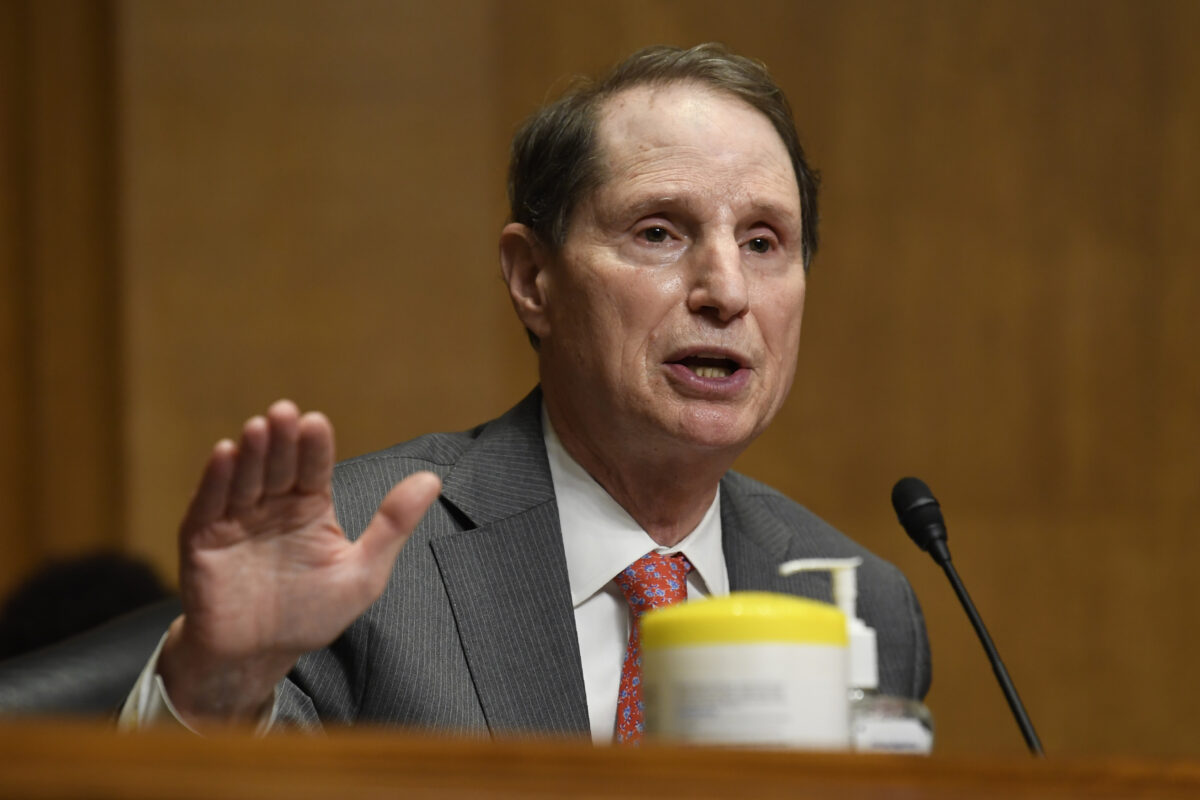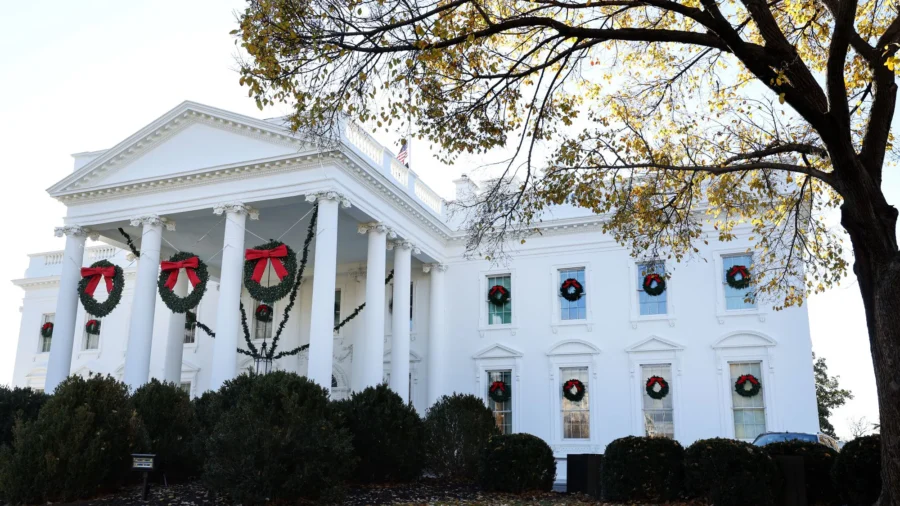A White House-backed program in partnership with telecom giant AT&T collects phone call records of Americans and provides law enforcement access to the databases.
Sen. Ron Wyden (D-Ore.) has raised “serious concerns about the legality of this surveillance program.”
On Nov. 20, Mr. Wyden wrote a letter to Attorney General Merrick B. Garland asking for more information about the Hemisphere Project—a “long-running dragnet surveillance program in which the White House pays AT&T to provide all federal, state, local, and Tribal law enforcement agencies the ability to request often-warrantless searches of trillions of domestic phone records.”
Hemisphere can be used to identify a target’s alternate numbers, location, and phone records of every person who communicated with them.
4 Billion New Records a Day
The program’s existence was revealed by the New York Times in a 2013 article. AT&T has kept call records going back to 1987, adding 4 billion new records daily, the article said.
The senator’s letter points out that Hemisphere receives federal funds via an “obscure grant program” that doesn’t require a mandatory federal privacy review.
If the funds were routed directly through a federal agency, Hemisphere would have been subject to a Privacy Impact Assessment conducted by the Department of Justice’s (DOJ) Office of Privacy and Civil Liberties. The findings would be made public.
Instead, money for Hemisphere is acquired by the White House Office of National Drug Control Policy (ONDCP) through the Houston High Intensity Drug Trafficking Area (HIDTA), a funding organization administered by ONDCP.
Programs backed by the White House are exempt from rules mandating privacy impact assessments. The White House also is not subject to the Freedom of Information Act.
Requests Reviewed by One Analyst
Officials at the Houston HIDTA told Sen. Wyden’s staff that all Hemisphere requests are sent to a single AT&T analyst in Atlanta, Georgia, according to the letter.
Any law enforcement officer working for the federal, state, local, or tribal law enforcement agencies can request the analyst to run a query. The search requests need not be related to drug-related investigations.
“I have serious concerns about the legality of this surveillance program, and the materials provided by the DOJ contain troubling information that would justifiably outrage many Americans and other members of Congress,” Mr. Wyden wrote.
“While I have long defended the government’s need to protect classified sources and methods, this surveillance program is not classified and its existence has already been acknowledged by the DOJ in federal court. The public interest in an informed debate about government surveillance far outweighs the need to keep this information secret.”
The program received funding from the White House beginning in 2009. After the press exposure in 2013, funding for the program was suspended by the Obama administration. However, it was revamped under a new name—Data Analytics Services (DAS)—and secured another source of federal funding.
ONDCP resumed funding of DAS in 2017 under the Trump administration. In 2021, the funding was paused once more under the Biden administration, only to be resumed a year later in 2022.

Call records stored by AT&T under DAS do not include recordings of conversations, according to media outlet Wired. Wiretapping on U.S. soil requires a warrant. Instead, the records include identifying information like the names of callers and receivers, the date and time of the calls, and phone numbers.
The Hemisphere program allows law enforcement to search through this data via the AT&T analyst. In 2018, the civil liberties organization Electronic Frontier Foundation (EFF) was able to secure documents and communications related to Hemisphere after filing a lawsuit against the Drug Enforcement Administration (DEA).
The documents revealed that the Hemisphere program offered three unique features for law enforcement searches:
- Dropped and additional phone identification: AT&T analysts use sophisticated algorithms to run an abandoned number through a database to identify a suspect’s potential new phone number.
- Location identification: Analysts can provide investigators with access to temporary roaming location data of individuals when they make or receive calls.
- International phone number identification: The program gives information on call records made by international phone numbers that place calls through an AT&T network or roam on the network. As such, investigators need not contact foreign law enforcement to obtain such details.
The Hemisphere program can return records to queries in as little as an hour if an official makes an emergency request. For non-emergency requests, it would take only one to five days.
“That is significantly faster than requests made directly to the telephone provider,” EFF states.
Free From Scrutiny
According to data provided by ONDCP to Mr. Wyden, the agency provided Hemisphere with $6.19 million dollars in funding between 2009 and 2022.
Hemisphere is not the first federal dragnet surveillance program. Back in 1992, the DEA launched a program that forced phone companies to provide records of calls from more than 100 nations. The National Security Agency (NSA) had a bulk metadata collection program, which was eventually ruled illegal by a court in 2014.
The difference is that while these programs were subject to oversight from Congress, DAS is free from such scrutiny.
Earlier this month, Mr. Wyden and other lawmakers introduced the bipartisan “Government Surveillance Reform Act” that seeks to protect Americans from “warrantless backdoor searches,” according to a Nov. 7 press release.
The bill also aims to ensure that “foreigners aren’t targeted as a pretext for spying on the Americans with whom they are communicating.”
The Epoch Times reached out to the White House for comment.
From The Epoch Times

